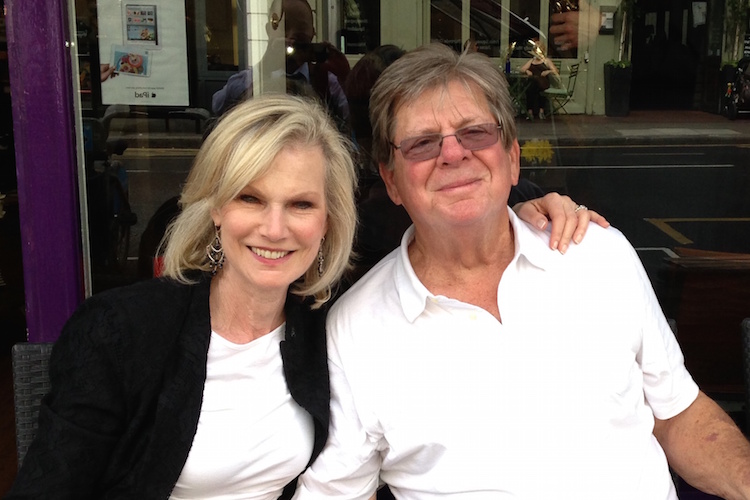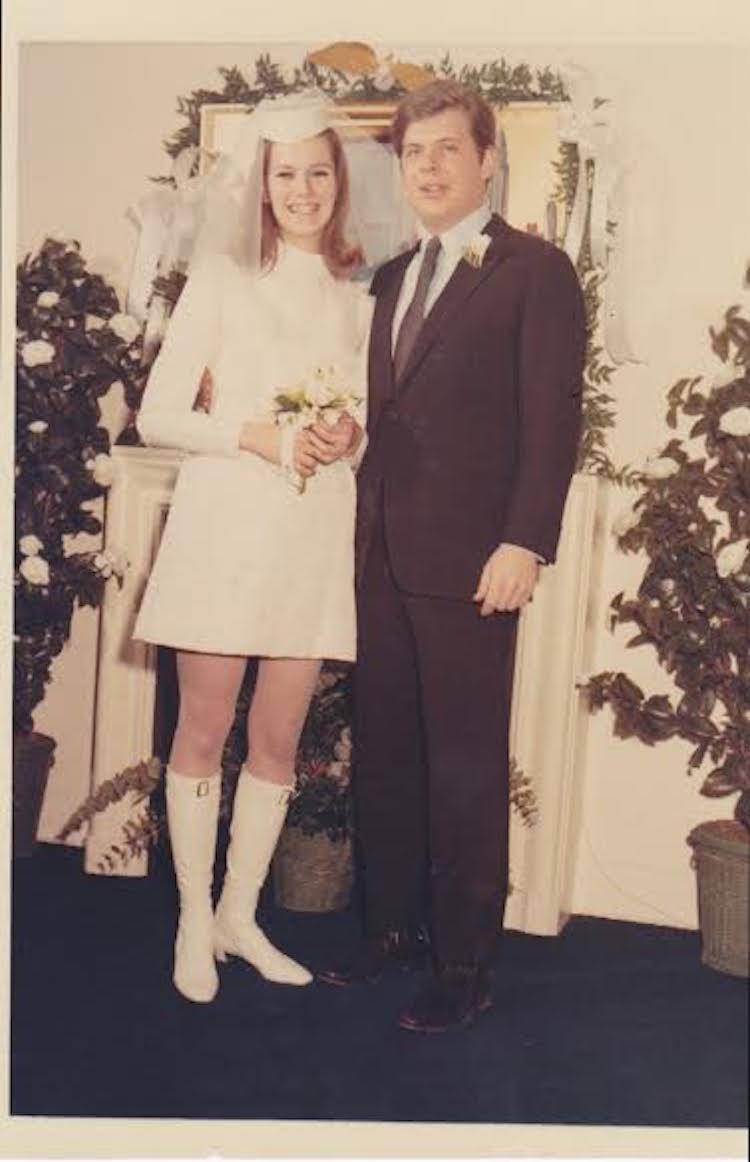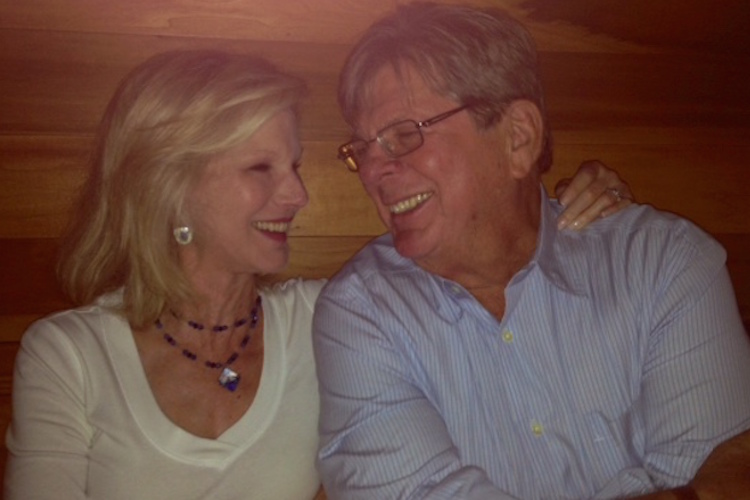Stop Saying My Late Husband ‘Passed’: What One Widow Wants You to Know About Love and Loss

Can you imagine the nightmare of your husband dying suddenly in your arms without warning? A few years ago, that nightmare became a reality for Laurie Burrows Grad, a cookbook author and television chef. After 47 years of being married to her soulmate Peter, she experienced what she called “one of life’s cruelest traumas.” It was August 1, 2015.
“One minute he was laughing and the next minute he was gone,” she said. “I fell to the floor in heaving sobs. It was like out of a movie.”
No woman wants to be a widow, but it happens for many women sooner than they expect. The average age of widowhood in this country is 59, according to the US Census Bureau. Half of women who become widows experience their spouse’s death by age 65. And yet, very few women want to talk about widowhood. Grad, who wrote the book The Joke’s Over, You Can Come Back Now ($14.95, Amazon) about her personal experience, is one of those few women who makes a point to speak up about coping with loss and learning to feel good again.
But her book — and the many grief blogs she wrote prior to it — didn’t happen overnight. As she told WomansWorld.com, it all started after she felt the urge to write about her feelings while she was especially sad. Sometimes, this happened after she heard certain responses from people about her husband’s death that she didn’t like.

Laurie and Peter’s wedding on February 11, 1968. (Photo Credit: Laurie Burrows Grad)
“People would say, ‘Oh, I’m so sorry your husband passed,'” she said. “Well, that’s the wrong thing to say. Peter passed the gravy, he passed a football… But he did not pass. He died.”
Another thing that bothered Grad was when people said she “lost” her husband. Although she knew they meant well, this particular comment stung because it made her feel like she did the losing.
“You lose your keys and you expect to find them again, right?” she said. “There’s no Find Peter app on my phone. I can’t find him again.”
Other cliché phrases that got under her skin included, “He’s in a better place,” and “Everything happens for a reason.” After this happened again and again, Grad addressed the problem head-on while blogging about grief and widowhood on The Huffington Post, where she had a platform to teach people how to speak and act around the bereaved — and to empower fellow widows who were struggling.
More than 100 successful blog posts later, it’s clear Grad’s voice is one that was needed.
“Other widows have told me that I give a voice to them,” she said. “I am able to say all the things that they’re not able to say.”

(Photo Credit: Laurie Burrows Grad)
These topics have ranged from feeling alone at night, experiencing a “grief burst” in the car, and, of course, having conversations with people that include hurtful statements. Throughout it all, Grad encourages widows to remember that it’s so important that they get the support they need — because no one person can handle grief on his or her own — a point she drives home even further in her book.
She also dishes out helpful advice for those of us who don’t know what to say to a widow, with something she calls “Talking to the Bereaved 101.”
“You can hug someone,” she said. “We need the hugs. You can say to someone, ‘I’m bringing dinner’ one night. ‘I’m bringing wine over.’ Just be there for them.”
Grad wants widows to know there are resources out there to help them— such as grief therapists, grief books, and of course, family and friends — as they embark on their journey of recovery. And she also wants them to remember in the meantime that it’s important to cry.
“Do not be strong,” she said. “You don’t have to prove anything to anyone.”

(Photo Credit: Laurie Burrows Grad)
More From Woman’s World
6 Ways to Help a Grieving Friend During the Holidays
7 Emotional Stages of Watching ‘Diana: Seven Days That Shook the World’
Horrific Fire Burned Half Her Body, But She Found a Way to Move on With Gratitude












